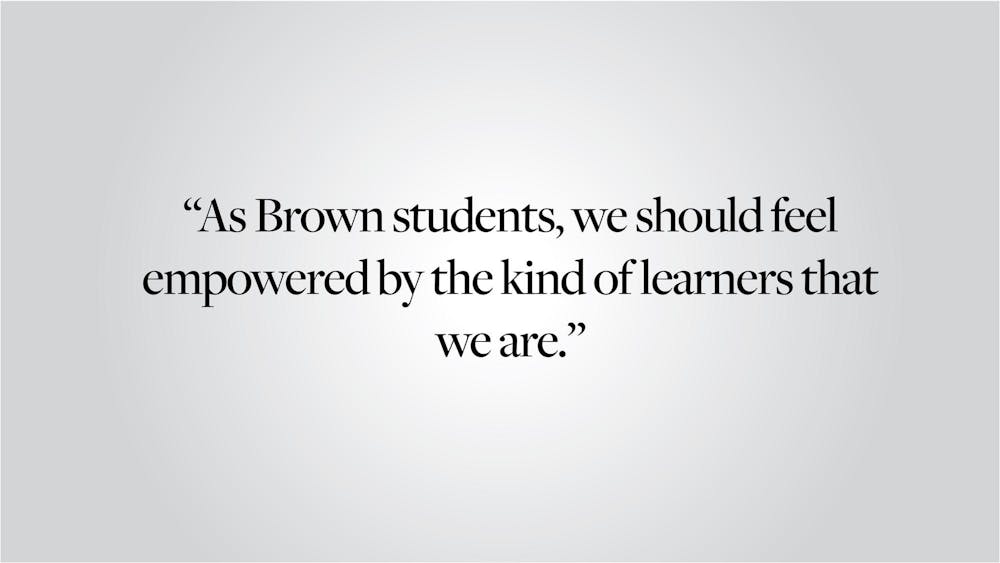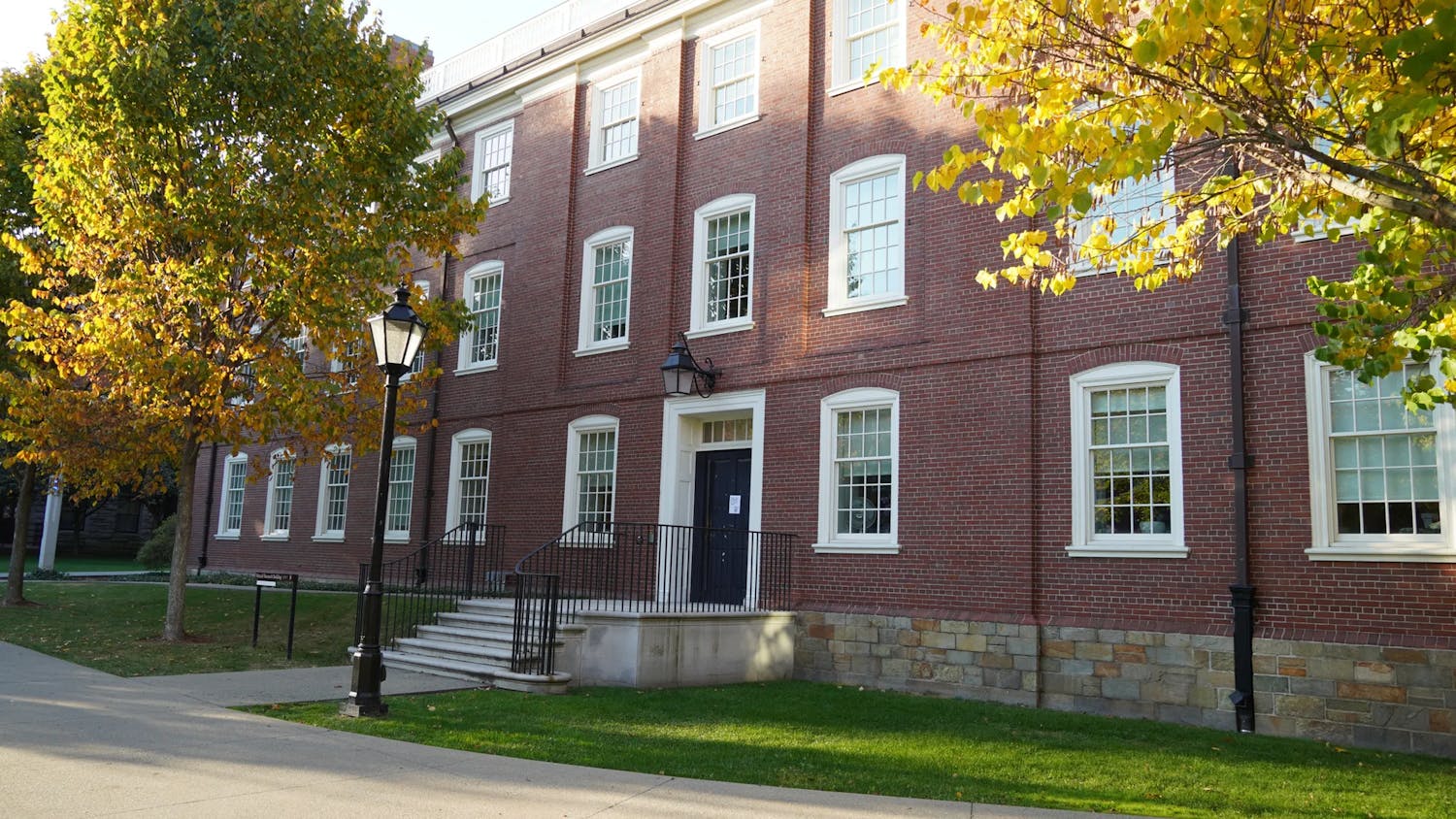“So … why would you not just take everything pass/fail again? Why buy the cow when the milk is free?”
Sitting on a dorm floor during the blur of the gameday weekend, a semi-well-intentioned Harvard computer science major poses a genuine question about Brown students. Why is it that we still register for graded classes, sometimes risking our “GPA,” when we don’t have to? Why buy the cow?
It is no secret that Brown’s unique approach to interdisciplinary study attracts a very specific kind of person. We all seem to come with a twist: the computer science concentrator with a knack for creative writing, the econ buff with a keen interest in biology, the music major juggling two different language courses. Such combinations might be deemed unconventional anywhere else, but Brown is designed to facilitate them through the Open Curriculum. While this freedom is something Brunonians hold sacred, it has also colloquially earned Brown the reputation of being “laidback,” implying a lack of structure or rigor compared to other institutions. But it is a huge misconception that wanting to study more than one discipline comes at the sacrifice of academic depth. As a Brown student, I recognize that I may be biased toward the style of my education. However, my goal is not to exalt Brown's curriculum, but rather to defend it against accusations that its emphasis on choice lessens its quality. Brown’s academic environment does not bear any consequence on the work ethic, ambition or capabilities of its students. Rather, the responsibility over their education took on by Brown students demonstrates a highly valuable sense of independence and critical decision making.
The Open Curriculum was founded amid the sociopolitical tumult of the 1960s, supported by an increasingly diverse student population with the conviction that their education should enrich them as individuals and equip them to solve real-world problems. This belief manifested itself through the Group Independent Study Project (GISP), a coalition of twenty-five students that would go on to shape the future of Brown’s curriculum. The sentiments shared by GISP members are just as important fifty years later, amid modern-day ideological entanglements — think cybersecurity, vaccines, stem cell research and AI, to name a few. With the way that technological advancements are playing out across an ever tumultuous world stage, we should encourage the professionals at the forefront of these fields to have a well-developed worldview beyond their specific area of study.
Still, Brown struggles to communicate the value of an interdisciplinary education to those outside the Van Wickle gates. Given the rapid pace of the industry, it’s easy to see how computer science initiatives could struggle to maintain connections with large firms. Note that this is certainly not due to a lack of proficiency or resources among Brown CS students, and that historically, Brown has been at the forefront of some fascinating advancements within computer science (check out the history of the department and this appropriately grainy clip from 2007).
Brown’s lack of momentum within the post-graduate job market is a wider trend across disciplines. The University ranks 19th in employability, the second-lowest ranking within the Ivy League. Given that Brown students have the freedom to study across as many subjects as they please, you’d think they’d have a greater chance of being readily employable across more fields. With fresh eyes and all cynicism aside, I’ve seen the work people do on this campus and the zeal with which they do it, and I find it disheartening that simply because our curriculum is uncommon, it is rarely seen as practical. We derive our passions from a unique awareness of the skills we possess, not just a superficial interest in the topic itself: the Computer Science and English concentrator has a gift for syntax of all kinds; the Econ pre-med has the ability to analyze a trend and diagnose the problem; the polyglot music student wields an unmatched talent for pattern recognition. As Brown students, we should feel empowered by the kind of learners that we are: It takes a kind of mettle to have the responsibility we do over our education and elect to be curious and explore. I firmly believe this is our greatest strength, and the pathway to success lies in finding the best way to communicate it outside our community.
So why buy the cow? Because you’re genuinely interested in the cow, and you’ve been shopping the cow all week, and the cow has a really charming old professor who reminds you of your grandpa and inspires everyone to succeed in the class, and because you have nothing to prove to anyone but yourself, and because you know you can do it.
Why buy the cow? Because it’s not about the milk. It’s about what we have to show for it when it all runs out.
Camila Valdez ’27 can be reached at camila_valdes@brown.edu. Please send responses to this opinion to letters@browndailyherald.com and other op-eds to opinions@browndailyherald.com





